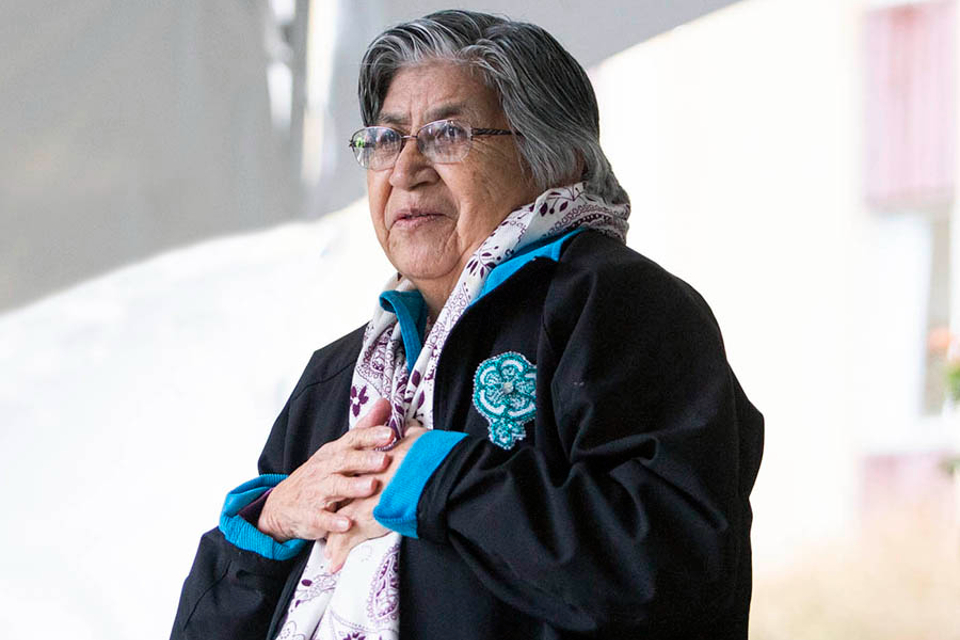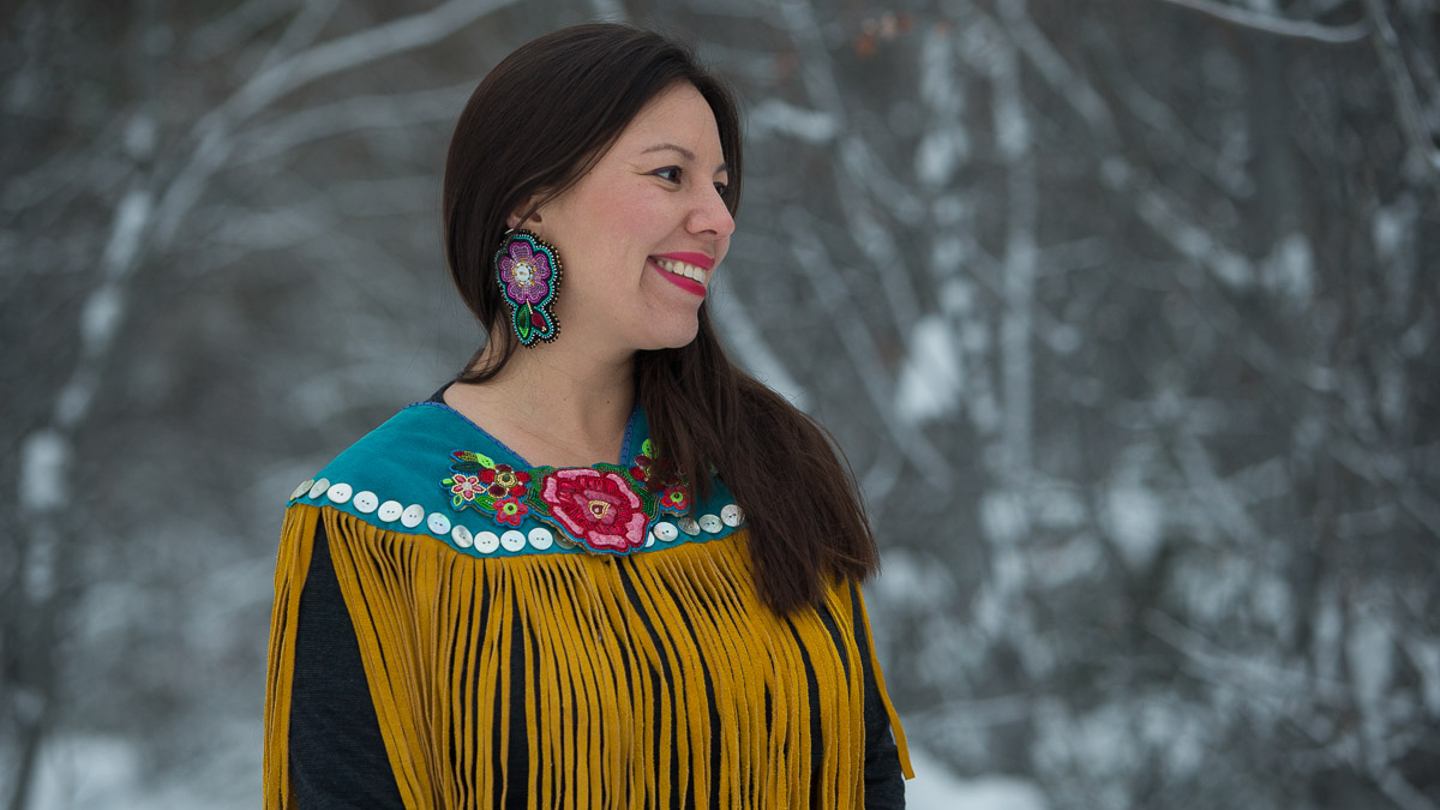New Indigenous science speaker series
Message from the Tri-Faculty Indigenous Resurgence Coordinator
Tansi kiyawow (hello everyone),
I'm writing to you as we wrap up our fourth presentation in our new Indigenous science speaker series. We've heard from Indigenous scholars working in or alongside the field of science. Indigenous communities have been practicing science since time immemmorial and Indigenous Scientific Knowledge continues to contribute to and challenge Western Scientific Knowledge. The focus of this series was to highlight the relationship between these two knowledge systems.
I think a common Indigenous approach to learning means learning with our whole selves which enables us to learn about relationship, responsibility, and how to live our learnings in our everyday lives. The speakers demonstrated this in their talks and reinforced the benefits of continuing this work.
I hope you'll explore the recordings below—more are on the way! If you have questions or recommendations for future speakers, please contact me at tfirc@uvic.ca.
Kinanaskomitinawaw (Thank you all),
Lydia Toorenburgh, Indigenous Resurgence Coordinator
We come from the stars
Each star has its own origin story. The churning nuclear forge within its center produces and returns new elements to the interstellar gas where they are recycled to form new stars. Indigenous astronomer Laurie Rousseau-Nepton is leading an internal team to study 50,000 regions where stars actively form to understand how star birthplace affects the rest of its life—and consequently the evolution of our Universe.
Rousseau-Nepton joined our new speaker series March 7 to present her international project SIGNALS and also host an open discussion on the different paths to Indigenizing astronomy and science.
Title: We come from the Stars: The Birth of Stars in our Universe
Date: March 7, 2022
Time: 11 a.m. to 12 p.m.
Location: Zoom
Rousseau-Nepton is a resident astronomer at the Canada-France-Hawaii Observatory and the first Indigenous woman in Canada to obtain a PhD in astrophysics. She was awarded a NSF and FRQNT grant for her research as well as the Hubert Reeves Fellowship.
Master at work: math and art in ancient craft

At the intersection of math and art is renowned master Cowichan knitter and beloved Elder, May Sam. Elder May joined our new speaker series March 9 to discuss how math is integrated in her practice from planning to execution to assembly. She has generously agreed to share examples of her highly sought-after work.
Title: Stitching Math and Art Practices Together: Stories from Master Cowichan Knitter Elder May Sam
Date: March 9, 2022
Time: 2:30 p.m. to 3:45 p.m.
Location: First People’s House Ceremonial Hall
Being whole: Yukon First Nation’s science & storytelling

What is our role in creating a better tomorrow? Jocelyn Joe-Strack—microbiologist, hydrologist, policy analyst and Auntie—joined our speaker series March 21 to help us explore new understandings for social transformation and responsibility in our crisis of mental health, climate change and inequality.
Title: Being Whole–Yukon First Nation’s Science and Storytelling for Transformation and Hope
Date: March 21, 2022
Time: 2:30 to 3:50 p.m.
Location: Engineering Computer Science Building, Rm 104 and online
Jocelyn Joe-Strack, Daqualama (Da-kal-a-ma), is a member of the Wolf clan of the Champagne and Aishihik (A-shzee-ak) First Nation. Jocelyn is an Indigenous scientist, philosopher and leader who uses her experience as a microbiologist, hydrologist and policy analyst along with her cultural foundations to explore resilient approaches to challenges such as climate change, societal wellbeing and prosperity. Jocelyn is the first Indigenous Knowledge Research Chair at Yukon University, and also a UVic alumnus (BSc Microbiology and Biochemistry). Her research focuses on Youth Climate leadership, revitalizing traditional storytelling and whole person approaches for decision making and education.
Climate variability & extremes
Science and Inuit both have ways of knowing with a rich understanding of climate, the ocean and sea ice. These understandings are distinct and independent, yet complementary. Is it possible to bridge these two knowledge systems so as to inform each from the other?
Explore Indigenous perspectives on climate alongside current research in oceanography with Eric Oliver, who joined our speaker series March 30.
Title:Research on the coastal ocean in Nunatsiavut with science, Inuit Knowledge, and community engagement
Date: March 30, 2022
Time: 10 to 11:15 a.m.
Location: Zoom
Eric Oliver is an Assistant Professor of Physical Oceanography at Dalhousie University. His research interests involve ocean and climate variability across a range of time and space scales including extreme events (marine heatwaves, storms), the predictability of climate variations, the influence of modes of variability (such as the Madden-Julian Oscillation) on the ocean, and the role of climate change on the mean state, variability and extremes of the climate system. He is of Inuit descent with roots in Nunatsiavut (northern Labrador) and interested in Indigenous perspectives on climate, weather and oceans and understanding both Indigenous and scientific knowledge of these systems.
A Message from the Faculty of Science on Indigenous initiatives
Indigenous social, cultural and academic supports and resources available at UVic
